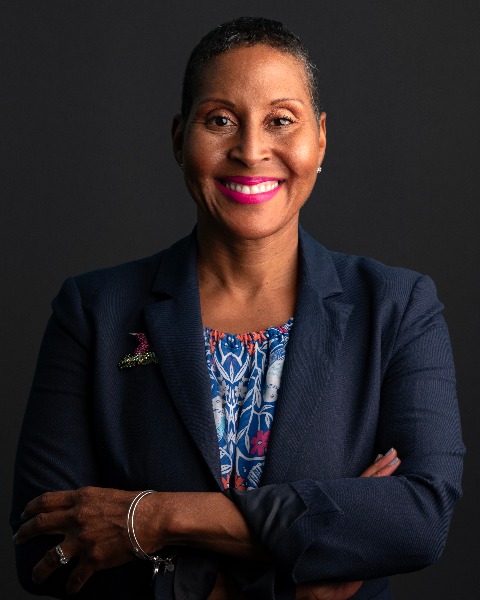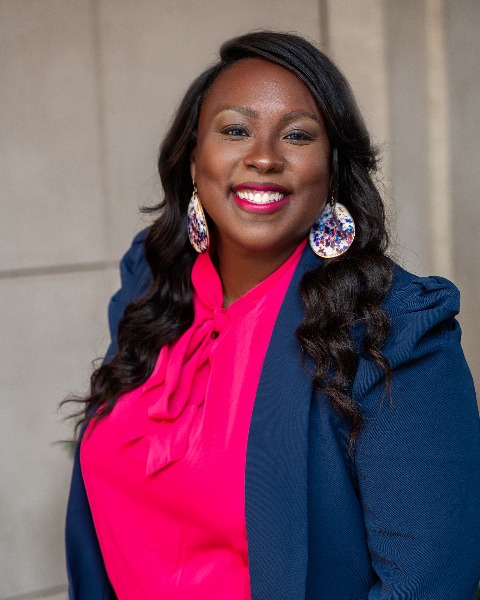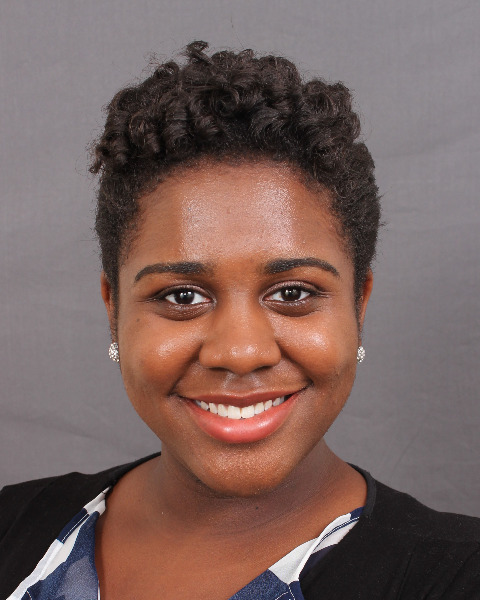Nonprofit and Foundations
Representation Matters: Engaging a Community Advisory Board to Shape & Refine the Emory COMPASS Center's Community-Led Grantmaking & Capacity Building Initiative for Southern HIV service organizations
-

Candace Meadows, MPH
Director, Strategic Partnerships & Initiatives
COMPASS Coordinating Center - Emory University Rollins School of Public Health
Atlanta, Georgia, United States -

Candace Meadows, MPH
Director, Strategic Partnerships & Initiatives
COMPASS Coordinating Center - Emory University Rollins School of Public Health
Atlanta, Georgia, United States -
GC
Guilemere Cox, JD
Community Advisory Board
Emory COMPASS Coordinating Center
Charlotte, North Carolina, United States -

Kia Colbert, MPH, CHES (she/her/hers)
Director, Emory COMPASS Coordinating Center
Emory University Rollins School of Public Health
Atlanta, Georgia, United States -

Rebecca Fils-Aime, MPH (she/her/hers)
Evaluation Specialist
Center for Program Evaluation and Quality Improvement, Emory Centers for Public Health Training and Technical Assistance, United States -
CR
Christopher Roby, PhD
Community Advisory Board
Emory COMPASS Coordinating Center, United States
Facilitator(s)
Presenter(s)
Location: White River Ballroom G
Abstract Information: The Emory COMPASS Coordinating Center of the Gilead COMPASS Initiative® engages a nine-member community advisory board (CAB) to facilitate the development, evaluation, and refinement of the Center’s community-led grantmaking and capacity building initiative for HIV service organizations in the U.S. South. Emory COMPASS Center’s purpose of convening and collaborating with a CAB is to ensure that the Center’s work is guided by subject-matter experts that represent the communities and populations that the Center serve. CAB members' leadership, voices, experiences, and stories are sought to incorporate ongoing qualitative data in the development and implementation of the Center’s community-guided programming. The Emory COMPASS Coordinating Center is one of four Coordinating Centers (Emory University Rollins School of Public Health, University of Houston Graduate College of Social Work, the Southern AIDS Coalition, and Wake Forest School of Divinity) of the Gilead COMPASS (COMmitment to Partnership in Addressing HIV/AIDS in Southern States) Initiative®. The Gilead COMPASS Initiative® is an unprecedented more than $100 million commitment over ten years to support organizations working to address the HIV/AIDS epidemic in the U.S. South, implement HIV-related programming, and provide funding to local organizations. In alignment with two of COMPASS’ shared values – Meaningful Involvement of People Living with HIV/AIDS (MIPA) and Collaboration and Commitment – Emory COMPASS Center relies on the stories and experiences from the community to develop and refine community-led programming. Emory Center’s CAB provides the Center with invaluable feedback of personal and eyewitness stories and experiences that has contributed to the formative, process, and outcome evaluation of the Center’s capacity building and grantmaking programs. The Center’s CAB is a direct conduit to the experiences of the focus population and intended recipients of the Center’s technical assistance and capacity building funding. This AEA session will provide a facilitated panel discussion to explore the relevance of establishing and maintaining a community advisory board that is a direct representation of the focus population, and the impact of qualitative data from an engaged CAB has on the development and refinement of programming using storytelling as a method of evaluation. By the end of the session, attendees will be able to: 1. Identify three benefits to establishing a community advisory board that is reflective of the focus population. 2. Explain how the stories, voices, and experiences of an engaged community advisory board can guide the development, evaluation and refinement of community-led programs. 3. Discuss how storytelling can be used as a method of formative, process, and outcome evaluation.
Relevance Statement: The Gilead COMPASS Initiative® is led by five core imperatives – 1. Start with the Data 2. Meet People Where They Are 3. Facilitate Alliances and Partnerships 4. Leverage Existing Models of Success 5. Evaluate and Share Knowledge Quantitative data reveals the following about the U.S. HIV epidemic: ● In 2020, the South comprised 38% of the U.S. population, but represented over half (52%) of new HIV diagnoses.1 ● In 2020, Black people represented 42% of new diagnoses but made up only 14% of the U.S. population.2 ● Between 2019 and 2020, 4 in 10 Transgender Women (42%) in 7 U.S. cities (Atlanta, Los Angeles, New Orleans, New York City, Philadelphia, San Francisco, and Seattle) were living with HIV.3 ● In 2021, an estimated 45% of Hispanic/Latinx individuals reported ever being tested for HIV.4 To better understand some of the drivers and stories behind this quantitative data, Emory COMPASS Center staff engaged with HIV leaders, advocates, people living with HIV (PLWH), and members of communities most impacted by the epidemic at the onset of program development. Center staff gathered qualitative data to identify the infrastructure, capacity building, and funding needs of organizations providing HIV services. Staff used collective stories from the community to guide the development and implementation of Emory’s capacity building and community-led grantmaking programs. To ensure community voices, stories, experiences, and needs remain a part of Emory’s evaluation and CQI processes, staff convened a community advisory board that is a direct representation of COMPASS’ focus populations. Since the CAB’s inception, Emory staff has maintained consistent collaboration with the CAB. One of the advantages of actively engaging a CAB in the Center’s work is having a continuous evaluation feedback loop for the Emory COMPASS Center. The ongoing qualitative feedback collected via stories shared by the CAB helps to modify and refine programs and be more intentional in effectively collaborating with community partners to build sustainable organizational capacity among HIV service organizations to increase access to quality HIV care in the U.S. South. Since 2018, the Emory COMPASS Center has thoughtfully engaged a community advisory board to conduct formative, process, and outcome evaluations of the Center’s capacity building and grantmaking programs via storytelling and uplifting and following the voices, experiences, and leadership of the community. Footnotes: 1. AIDSVu. https://aidsvu.org/resources/deeper-look-south/. Accessed March 21, 2023. 2. AIDSVu. https://aidsvu.org/resources/deeper-look-hiv-in-black-communities/. Accessed March 21, 2023. 3. AIDSVu. https://aidsvu.org/resources/data-on-transgender-people-living-with-hiv/. Accessed March 21, 2023. 4. AIDSVu. https://aidsvu.org/resources/deeper-look-hiv-among-hispanic-latinx-people/. Accessed March 21, 2023.
